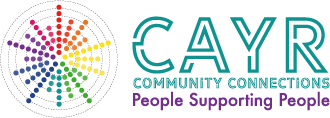AIDS Committee of York Region hopes to ‘normalize discussion’
By Katelyn Verstraten special to The Star
It may seem as though discrimination toward people living with HIV/AIDS should be a rare occurrence in 2016, but that’s not always the case – an issue the AIDS Committee of York Region is working to counter.
“There’s still a lot of stigma around HIV, but often it’s coming from a place of ignorance and lack of education,” says Vibhuti Mehra, executive director of the charity. “We want to normalize the discussion around HIV, take out that fear and demystify the myth that has perpetuated over the years.” Educating people about HIVIAIDS through the community engagement program is a one of the committee’s main goals, as is providing “dignified care, support and information” to people living with the disease.
Mehra estimates that 400 people are living with HIV/AIDS in York Region, including people who have yet to be diagnosed. The committee provides services to about 25 per cent of these people.
Programs include wellness groups for people living with HIV/AIDS, condom dispensaries, counselling and case management, as well as the Drive to Care service that transports clients to medical appointments as far away as Toronto.
The agency also provides funding for clients to pursue further education, as well as for those in need of money for necessities such as food, medications and rent.
“People come to us because they feel safe as a person living with HIV, but the supports that they need are beyond just a life with HIV – many of our clients are living in poverty and struggling with other health and wellness issues,” Mehra says. “You can’t treat HIV or provide services to an HIV-positive person unless you look at them as the whole person.” What your money can do
- $30 provides a client with 10 transit tickets to get to services
- $50 pays for a taxi ride for a client living in a rural area to participate in a wellness group
- $100 helps a person living with HIV/AIDS pay rent
- $200 helps someone living
with HIVI AIDS pursue further education. Where your money goes
- 24 per cent of public/private grant funding goes to rent and administrative costs
- 76 per cent of public/private grant funding goes directly to programs and services
- 100 per cent of community donations go directly to support client services
Source: Toronto Star, January 19 2016, Business section, page 11





